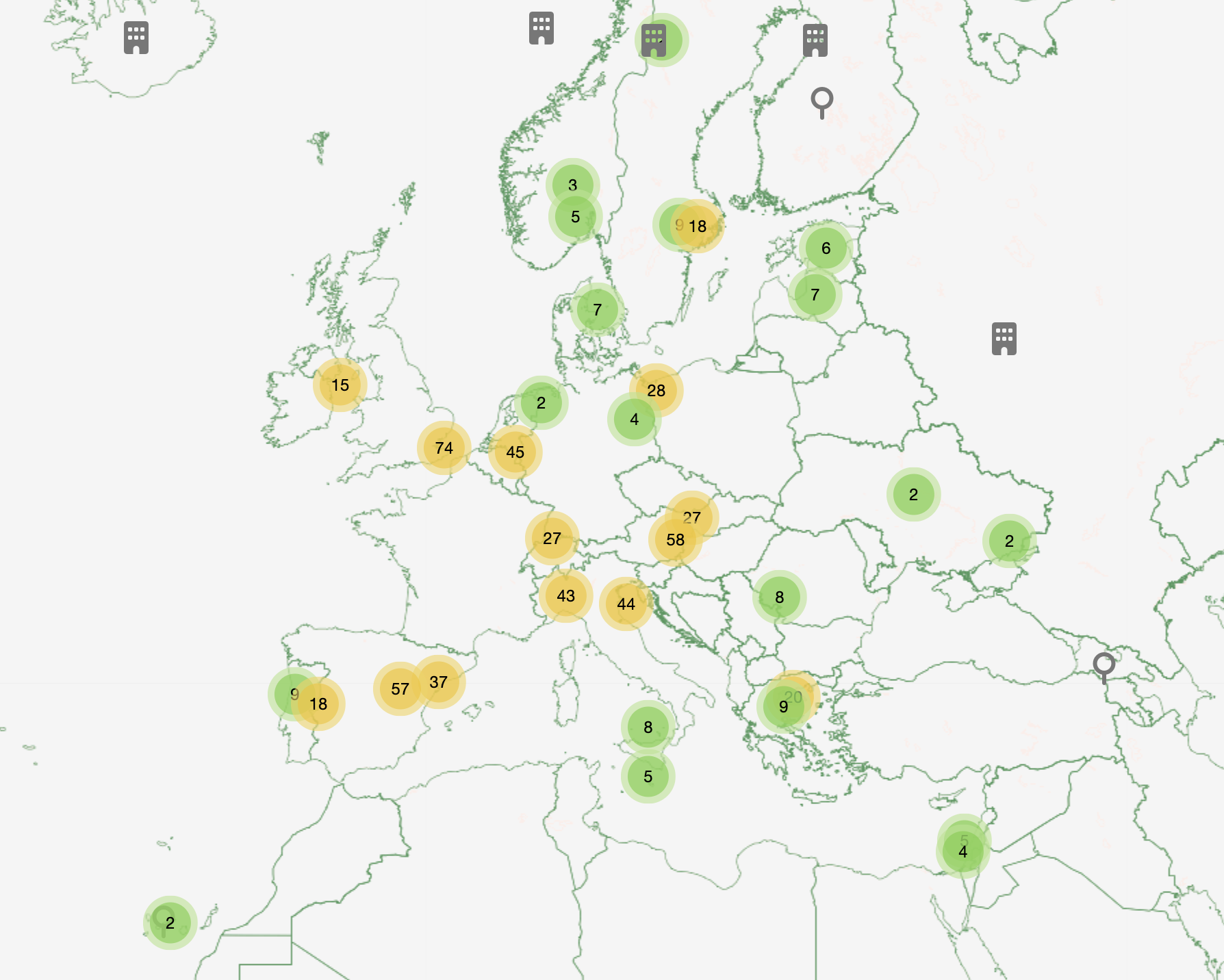
Towards a community of developers (for citizen science)
Francisco
Aug. 11, 2025, 11 a.m.
To achieve an open and participatory science that supports and showcases citizen science (CS), it is crucial to have platforms where we can see who is involved in what activities and how. These spaces must also offer resources for developing new citizen science projects, support training, and facilitate connections with key individuals and institutions to move initiatives forward. This is why platforms that gather this information, provided directly by its creators, and make it available to the citizen science community are essential.
The EU-CS-Platform code was developed with this purpose in mind. Available to everyone under the European Union Public Licence 1.2 (EUPL 1.2)—a license promoted by the European Union—it allows for free use, modification, and distribution, as long as it remains open and compatible with other similar licenses. This approach to sharing code fosters a collaborative and sustainable ecosystem, aligning with free software practices that prioritise transparency and reusability.
Its underlying open-software philosophy is reflected in its design, which seeks to make citizen science tools accessible, allowing both institutions and developers to contribute to its evolution. Released on GitHub, the code invites programmers from around the world to improve it or incorporate new functionalities, such as database management or automated tasks. This embodies the spirit of open science—where knowledge is shared to advance collectively—and aligns with the ECSA's ten principles of citizen science, such as the active participation of citizens in generating knowledge and ensuring transparency in scientific processes.
Originally developed by the Ibercivis Foundation within the EU‑Citizen.Science project and later extended under the ECS initiative—both funded by the European Commission—this code has evolved far beyond its initial role powering citizenscience.eu. It already underpins several national platforms: Brazil’s Cívis, run by the Brazilian Institute of Information in Science and Technology; the Dutch version, managed by the Citizen Science Nederland (CS‑NL) network; and the Portuguese portal, operated by the Portuguese Citizen Science network. Planned launches in Italy and Spain underscore the success of this open‑source approach: by adapting the software to local needs, each country can rapidly build a catalogue of projects and resources while expanding the reach of citizen‑science knowledge.
In a context where national and regional communities must preserve their unique cultural identity and exercise autonomous governance over their citizen science practices, it is vital to promote approaches that respect this diversity without imposing centralised structures. From the beginning of its development, the priority has been to support other institutions in adopting the EU-CS-Platform code to build their own platforms—whether national or thematic. This allows for precise adaptations to local needs, such as interfaces in native languages or the integration of specific regional priorities, all while benefiting from a shared technical core.
To sustain and expand this balanced effort, the European Citizen Science Platform working group was created to serve as a central hub for exchange. It is responsible for maintaining the platform's integrity, driving it forward with collaborative updates, and promoting its adoption in national or regional settings. Furthermore, this group defines the strategic direction of the shared core—ensuring compatibility and joint evolution—and, as an integral part of the ECSA, it governs the specific deployment on citizenscience.eu, guaranteeing alignment with European standards without undermining local independence.
Looking ahead, the success of the EU-CS-Platform code —along with other technological advancements in citizen science, such as the PPSR Core interoperability standards or FAIR tools for citizen data—depends on interconnection and the deliberate cultivation of a robust and empowered developer community.
While centralising knowledge in hubs facilitates global exchange and strengthens citizen science, this must be balanced with local independence. It requires recognising that technical knowledge must reside inherently within the community itself as an integral asset that is nurtured and evolves internally, rather than relying on external add-ons or contracted services.
In this context, the EU-CS-Platform code stands out as a paradigmatic success story. Its open-source code is actively reused in national platforms, promoting efficient collaboration without duplicating efforts and accelerating innovation in diverse environments. Although challenges like constant updates and fostering developer participation persist, they must be addressed through continuous training, recognition of contributions—via workshops and shared standards—and the pursuit of technical excellence to compete with dominant digital experiences, such as mobile apps or commercial platforms.
The resulting opportunities are immense: interconnected networks would democratise science on a global scale, respecting cultural identities and empowering communities with their own sustainable tools to lead their scientific advancement.
European Citizen Science Platform Working Group
Main author: Francisco Sanz
Co-authors: Jorge Barba, Carolina Doran
Image source: https://citizenscience.eu/map/